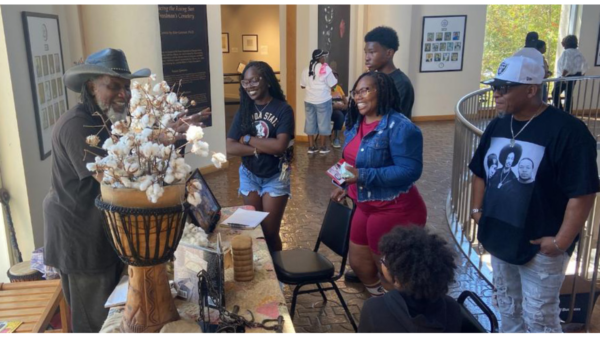By S.A. Miller
Special to the Afro

The term ”unapologetically Black” has been used by a lot of people for a lot of years. The meaning is often based on the context in which it is being used. For some, it connotes boldness and a “take no prisoners” attitude. For others, the term suggests that, as a Black American, there is no requirement to answer to anyone for how you act, think or feel.
For the purpose of this essay I will define “unapologetically Black” as having the mindset that respects, appreciates and cultivates the culture that is unique to African descendants born and reared in the United States over the last 400 years.
African culture arrived on the eastern shores of North America in the 1600s with Africans captured and sold as slaves. In the land that would become the United States of America, the enslaved women and men brought with them a culture based in respect, pride, honor, faith, love, tradition, strength and perseverance. Slave owners forced the slaves to assimilate into European culture which meant that many aspects of African culture could not be openly practiced in the presence of the slave master. Nonetheless, African slaves never abandoned their culture, and remained prideful and faithful even in the face of inhumane brutality.
By the time slavery was outlawed in the U.S., the enslaved Africans and their offspring had lived in this land for over 240 years, and anyone born during that time could be characterized as “African American.” When African Americans left the plantations and began developing their own communities in towns and cities across America, African culture was still a guiding force. What emerged was the “Black experience in America” a sense of shared experience fortified by the culture of the elders.
Over the last 160 years, Blacks have persevered in a land that never respected the “Black experience in America.” The European power structure, to this day, does not regard Blacks as equals. Little recognition is given by the majority culture to the accomplishments and contributions Blacks have made to the growth and development of the United States of America. Thus, it has become incumbent upon Blacks to constantly and continually recognize, publicize and celebrate their accomplishments in the wake of unprecedented efforts by the majority culture to return to a time when Blacks were relegated to second-class citizenship. Simply put, Blacks have fought too hard and too long to regress, and will never relinquish the gains made over the last 160 years.
So what does it mean to be “unapologetically Black?”
It means appreciating and elevating the culture that has been infused into the souls of Black Americans by the ancestors. It means being absolutely proud of the accomplishments that Blacks have achieved in the face of blatant bias, bigotry and racism. It means being grateful to all who work every day to make sure Blacks are not only seen, but listened to, as well. If a remix of James Brown’s anthem was done today, the title would be changed to, “Say it loud– I’m unapologetically Black– and I’m proud.”









You must be logged in to post a comment Login